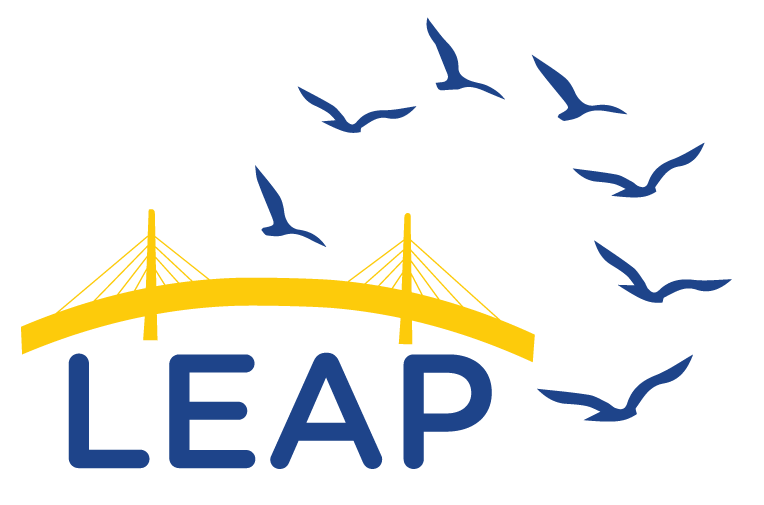Çorum’da yaşayan mülteci ve ev sahibi topluluklardan genç katılımcılar, “Çorum’da Mültecilerin ve Savunmasız Ev Sahibi Topluluk Üyelerinin Dayanıklılıklarının Artırılması ve Barışçıl Birlikte Yaşamanın Teşvik Edilmesi” Projesi kapsamında Çorum Arkeoloji ve Etnografya Müzesi’ni keşfetme fırsatı buldu.

LEAP’in, Avrupa Birliği İnsani Yardım ve Alman Hükümeti‘nin desteğiyle ve Alman Uluslararası İşbirliği Kurumu (GIZ) ile işbirliği içerisinde başarıyla yürüttüğü proje, Çorum’daki toplulukları aktif bir şekilde dahil ederek barış içinde bir arada yaşamayı teşvik etmeyi amaçlamaktadır. LEAP, Çorum’daki merkezinin faaliyetlerine katılan 27 genci (12-18 yaş arası) bir araya getirerek Çorum Arkeoloji ve Etnografya Müzesi’ne bir ziyaret düzenledi.


Ziyaret hazırlıkları kapsamında LEAP personeli ve genç katılımcılar müzeye gitmeden önce LEAP ofisinde bir araya geldi. Türkçe bilmeyen genç katılımcılar için LEAP tercümanı tarihi eserleri tanıttı ve sorularını yanıtladı. Bu gezi sayesinde hem ev sahibi hem de mülteci topluluklardan gençler, yaşadıkları şehri ve şehrin tarihini öğrenme fırsatı buldular. LEAP’in proje sorumlusu tüm katılımcıların eserlere ve Çorum’un tarihine büyük ilgi gösterdiğini belirtti ve şunları söyledi: “Katılımcılardan geziden ne kadar keyif aldıklarını ve ne çok şey öğrendiklerini anlatan çok sayıda teşekkür ve geri bildirim aldım. Bütün günü birlikte geçirerek, birbirleriyle sohbet ederek ve kaliteli zaman geçirerek, günün sonunda gülücüklerle dolu bir grup fotoğrafı çektiren ev sahibi ve mülteci topluluklardan gençlerin gezi sırasında çok güzel bir arkadaşlık bağı kurduğunu da gözlemledik.”

Proje hakkında daha fazla bilgi edinmek için tıklayın.
Bu bülten, Avrupa Birliği’nin İnsani Yardım Kurumu (ECHO) ve Alman Federal Ekonomik İşbirliği ve Kalkınma Bakanlığı (BMZ) ortak finansmanıyla yürütülen “Toplum Temelli Yerel İnisiyatifler Projesi (CLIP 2)” kapsamında hazırlanmıştır. İçeriği, Avrupa Birliği’nin maddi desteğiyle yürütülen insani yardım faaliyetlerini kapsamaktadır ve görevlendirici kurumların görüşlerini yansıtmak zorunda değildir.
LEAP’s Young Participants Visited Çorum Museum
Participants from the refugee and host communities residing in Çorum had the opportunity to explore the Çorum Archaeology and Ethnography Museum as part of the “Increasing Resilience of Refugees and Vulnerable Host Community Members and Fostering Peaceful Co-Existence in Çorum” Project.

LEAP has been successfully implementing the project in cooperation with Deutsche Gesellschaft für Internationale Zusammenarbeit (GIZ) with support from the European Union Humanitarian Aid and the German Government. The project aims to encourage peaceful co-existence by involving communities in Çorum actively. LEAP brought together 27 young individuals (aged 12-18) who are part of LEAP’s center in Çorum and arranged a visit to the Çorum Archaeology and Ethnography Museum.


Prior to the visit, LEAP’s staff and the young participants met at the LEAP office before heading to the museum. A translator from LEAP assisted the young participants who were not proficient in Turkish by explaining the historical artifacts and addressing their questions. This visit provided these young individuals from both host and refugee communities a chance to learn about the history of their city and its heritage. According to the project officer, all the participants showed keen interest in the artifacts and the history of Çorum. She shared, “We’ve received numerous expressions of gratitude and messages conveying their enjoyment and learning from the trip. We also observed that the young participants from both host and refugee communities formed friendships during the visit. Spending the entire day together, talking to each other, and having quality time together, they ended up taking a group photo with a lot of smiles at the end of the day.”

For more information click here.
This press release is prepared in the scope of the “Community-based Local Initiatives Project (CLIP 2)”, co-funded by the European Union through its Humanitarian Aid Operations department (ECHO) and the German Federal Ministry for Economic Cooperation and Development (BMZ). Its content covers humanitarian aid activities implemented with the financial assistance of the European Union and should not be taken, in any way, to reflect the official opinion of the commissioning parties.

No responses yet